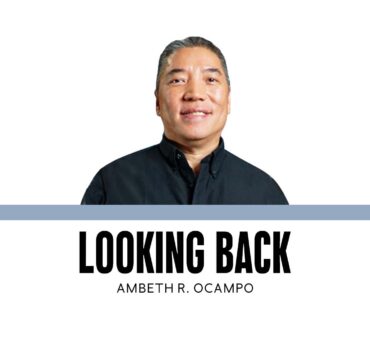COP30: Ambition that fails the Global South–again

I spent 40 hours hopping between four airports to reach the 30th United Nations Climate Change Conference (COP30) in Belem, Brazil. Before I even stepped into the negotiations, the journey alone reminded me of the barriers climate activists must break just to be in the room. It was my first COP. Nothing prepared me for the intensity of the chaos: shifting schedules, decoding technical texts, nonstop speaking engagements, navigating the politics that decide who gets heard—all while running on little sleep and walking 20,000 steps a day under the Amazon heat.
But the existential crisis came later. One morning, walking into a conference older than me, I asked myself: why do young climate activists like me still have to fight so hard for the most basic forms of justice? I felt like a speck of dust in a place overflowing with power, privilege, and competing agendas. And then I remembered where I come from.
My hometown is already living the future that many COP delegates are afraid to imagine.
I grew up in Zambales, home to one of the Philippines’ longest-operating coal plants. I saw communities bear the health impacts and environmental fallout, from coal ash exposure to constant threats of plant expansions, from damaged livelihoods of farmers and fisherfolk to deepening inequalities in already vulnerable communities.
So when COP30 talks about adaptation finance or transition pathways, I cannot help but think of my fellow kababayans—people who drown long before the world agrees to stop drowning them. Days before my flight, two deadly typhoons hit the Philippines in a week, causing $320 million in damage.
When the outcomes were gavelled through, I felt the weight of why our presence matters. Being here is not symbolic but necessary. I came because I have seen what fossil fuel dependence does to our communities. I refuse to let people who will never live with these consequences decide our fate without resistance.
The progress made in the Just Transition Work Programme is worth celebrating. It moved faster than expected, reflecting decades of struggle from trade unions, communities, social movements, indigenous peoples, and civil society. This win reflects the lessons carried forward with greater solidarity and a stronger push.
But without adequate finance, a just transition is a promise without a pathway. The decision remains hollow where it matters most: where is the money, and who will provide it?
Belem was supposed to be symbolic. It has been 33 years since countries first signed the UN Climate Treaty, hosted in a country that knows the stakes closely. This COP has the opportunity to mark a meaningful turning point for the Global South. Instead, it fell short on ambition, equity, finance, and justice. A text named after a Tupi-Guarani word for collective effort failed to deliver the collective courage.
A credible road map to transition away from fossil fuels remains absent. The text references transition but avoids clarity on timelines, financing, and responsibility. The strong means to make the transition meaningful were never truly on the negotiating table.
I am no longer shocked by what’s happening, and that is exactly the problem. Global North hypocrisy has become a routine: climate promises, no money, and continued fossil fuel expansion in the Global South. This is why the final text reads like a performative ambition, not a survival blueprint.
The finance provisions follow a familiar pattern: vague language, loopholes, and recycled ambition. Yes, there is a two-year work program under Article 9.1 and mention of tripling adaptation finance, but a footnote clarifies that nothing is binding.
Adaptation funds are dramatically insufficient, with no baseline. Will it be a new standalone $120 billion target? A sub-target of last year’s $300 billion goal? No one knows. What is certain is that the Global South needs $310 to $365 billion per year by 2035, which is 12 to 14 times higher than current finance flows.
As the world’s most disaster-prone country for the fourth time, our survival depends on a real fossil fuel phaseout backed by real money. Yet our delegation remained radio silent at critical moments. Silence in the face of climate injustice is abandonment.
Worse, a dangerous narrative is circulating that the Global South is the obstacle to progress. We must resist these narratives that paint us as the problem.
Until rich, polluting countries confront their own contradictions, they will only sow distrust and weakened support from Global South communities, and climate justice will remain out of reach. This is why young activists like me must remain inside and outside of these halls, no matter how exhausting they can be. When we do not show up, they win.
COP is just one battleground. The fight for climate justice continues at home, in our communities, in our streets, and in every space where power must be held accountable.
—————-
Ellenor Bartolome is the lead for policy, campaigns, and communications of the Philippine Movement for Climate Justice.

















Estoppeled by the Constitution